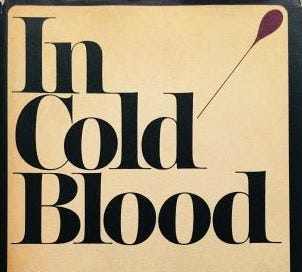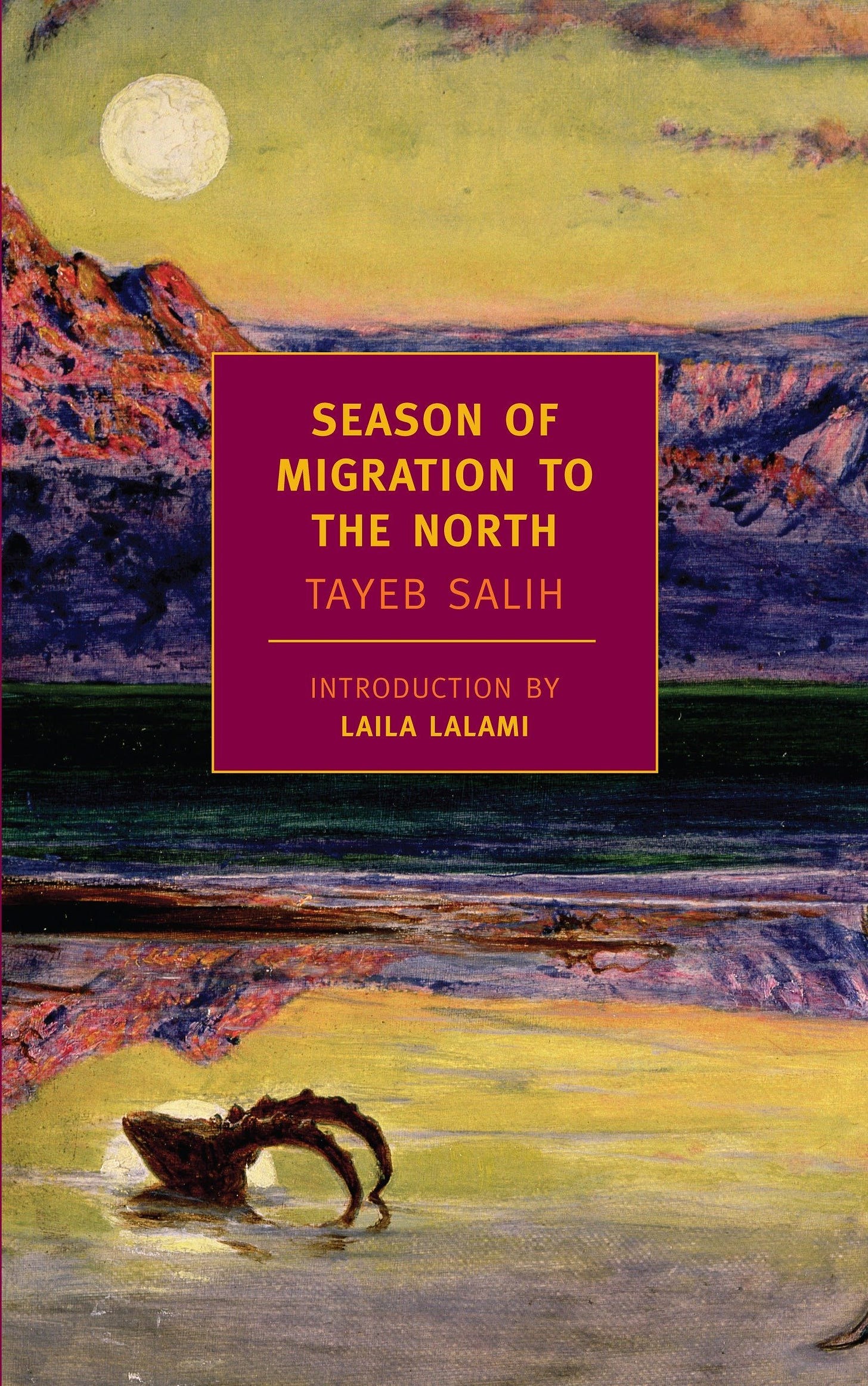[Note: Put cursor over footnote for pop-up.]
Well-Known Books:
Tai-Pan, James Clavell
The Secret of Santa Vittoria, Robert Crichton
Flowers for Algernon, Daniel Keyes
The Jewel in the Crown, Paul Scott 3
Valley of the Dolls, Jacqueline Susan4
Seven Important works by World Writers:
Silence, Shusaku Endo [Japan]5
Season of Migration to the North, Tayeb Salih [Sudan]6
Cancer Ward, Aleksandr Solzhenitsyn [USSR]7
Paradiso, José Lezama Lima [Cuba]8
Babi Yar: A Document in the Form of a Novel, Anatoly Kuznetsov [USSR]9
Efuru, Flora Nwapa [Nigeria]10
The Green House, Mario Vargas Llosa [Peru] 11
Works by Many Sci-Fi Writers of the Era:
Isaac Asimov, J. G. Ballard, Ray Bradbury, Philip K. Dick, Roger Zelazny and others, but not their major novels—with the exception of Robert A. Heinlein's, The Moon Is a Harsh Mistress
My List:
Another Country, James Baldwin12
Omensetter’s Luck, William Gass 13
The Fixer, Bernard Malamud14
Wide Sargasso Sea, Jean Rhys 15
Last Picture Show, Larry McMurtry 16
The Crying of Lot 49, Thomas Pynchon 17
Birth Year Project: A standing invitation
You supply your birth year [in a comment]; I'll respond with a short list of books published that year—the popular/well-known titles first, then some books I'd recommend. If your year's already been used, fret not; I'll do a fresh one.
Extra credit: You read one of the books (ideally one you're unfamiliar with), then tell me what you thought. If we get enough of these, I'll aggregate and post.
Shelter from the Storm Project
Here's the concept: Each of us has a small cache of books we know and esteem that even other readers like us likely don't know—our discoveries, books we feel a special need to keep out of the clutches of oblivion. I invite you to recommend one.
The details:
One per subscriber [for now].
Tell us why, in one sentence.
When there's enough for a list, I'll post.
You can have your name attached, or not—up to you.
I'll keep post this note [and the Birth Year Project] below my main posts.
Alas, an exceptionally male-centric year . . .
In Cold Blood. On my list as well. Capote didn't originate the "non-fiction novel" but was instrumental in legitimizing the form. Another powerful example is Norman Mailer's Executioner's Song (1979). Closely related to "New Journalism" of the same era.
https://en.wikipedia.org/wiki/Non-fiction_novel https://en.wikipedia.org/wiki/New_Journalism
The Jewel in the Crown. First book of Scott's Raj Quartet, set during the end of Britain's rule in India. An excellent TV adaptation appeared in 1984:
https://en.wikipedia.org/wiki/The_Jewel_in_the_Crown_(TV_series)
Valley of the Dolls. Susann's first novel. Panned by critics, gobbled up by readers—the bestselling novel of 1966.
Silence. Considered Endo's masterpiece. Two Portuguese Jesuit priests in 17th C. Japan. Filmed by Martin Scorsese (2016):
https://en.wikipedia.org/wiki/Silence_(2016_film)
Season of Migration to the North. Handsome new edition of this important novel by New York Review Books Classics (trans. by Denys Johnson-Davies, with intro by Laila Lalami), 2009.
Cancer Ward. Semi-autobiographical novel, finished in 1966, distributed via samizdat that year, banned in 1967. Solzhenitsyn was awarded the 1970 Nobel Prize for Literature, but was unable to accept it until his expulsion from the Soviet Union in 1974. Readers daunted by the length of the works, especially The Gulag Archipelago [written 1958-1968, published 1973], should read the slender One Day in the Life of Ivan Denisovich (1962).
Paradiso. Another masterpiece. Although not well known in the English-speaking world, Lima is one of the fathers (along with 1967 Nobel Laureate, Miguel Ángel Asturias) of the literary movement known as the Latin American Boom, which produced a wealth of major writers—Julio Cortázar, José Donoso, Carlos Fuentes, Gabriel Garcia Márquez (1982 Nobel Laureate), Juan Carlos Onetti, Octavio Paz [1967 Nobel Laureate], Manuel Puig, Juan Rulfo, Mario Vargas Llosa (see below) and many others.
Babi Yar: A Document in the Form of a Novel. About the Nazi occupation of Kyiv infamous events at Babi Yar. From Wiki: " . . . the two-day murder of 33,771 Jewish civilians on September 29–30, 1941 . . . was one of the largest single mass killings of the Holocaust." First published in a censored version in a Soviet magazine. Kuznetsov defected to the UK in 1969, smuggling out the unabridged text in the form of photographic film.
Efuru. Read about Nwapa, considered "the mother of modern African literature":
https://en.wikipedia.org/wiki/Flora_Nwapa
The Green House. Vargas Llosa, 2010 Nobel Laureate, has been a prolific literary writer and political figure since the 1960s. Highly influential. This was his second novel. Some other major works:
The Feast of the Goat, Mario Vargas Llosa (2000)
Death in the Andes (1996)
In Praise of the Stepmother (1990)
The War at the End of the World (1984)
Aunt Julia and the Scriptwriter (1982)
Another Country. Baldwin's third novel. He's a major figure in American letters—essayist, ex-pat, queer, Black, brilliant . . . My first encounter was via his famous short story, "Sonny's Blues." Many important works, including:
If Beale Street Could Talk (1974)
Giovanni's Room (1956)
Notes of a Native Son (1955)
Go Tell It on the Mountain (1953)
Omensetter’s Luck. Gass is a major writer, but an acquired taste. A good place to start would be the In the Heart of the Heart of the Country [stories], 1968. Gass was also a philosophy professor [for a taste of his nonfiction, try On Being Blue: A Philosophical Inquiry (1975)]. Omensetter’s Luck is a strange bit of Americana, set in the Ohio of the 1890s. Harper's said: "A rich fever, a parade of secrets, delirious, tormented, terrifying, comic . . . one of the most exciting, energetic and beautiful novels we can ever hope to read."
[Side note (from Wiki):
Gass began writing Omensetter's Luck around 1954. He was working on the last chapter of the novel in 1958 when the manuscript was stolen off his desk, forcing him to begin rewriting the book from scratch. He says of this time, "I was in a funk, a kind of fugue state. I reconstructed the book by working almost nonstop for about six months."]
https://en.wikipedia.org/wiki/Omensetter%27s_Luck
The Fixer. https://en.wikipedia.org/wiki/The_Fixer_(novel)
Wide Sargasso Sea. Wiki calls this novel "a postcolonial and feminist prequel to Charlotte Brontë's novel Jane Eyre (1847), describing the background to Mr. Rochester's marriage from the point-of-view of his wife Antoinette Cosway, a Creole heiress. Antoinette Cosway is Rhys's version of Brontë's "madwoman in the attic."
It's in the upper echelons of my How Come You Still Haven't Read This? list.
The Last Picture Show. Peter Bogdanovich's now-classic 1971 film of the same title was my introduction to McMurtry. My favorite is another early novel, Leaving Cheyenne (1963), but Lonesome Dove (winner of the 1986 Pulitzer Prize) may be his most widely appreciated. McMurtry was a prolific writer of fiction, nonfiction and screenplays . . . but also an antiquarian bookseller of considerable renown. His son is the rock/Americana musician, James McMurtry.
[Aside: Leaving Cheyenne is a triptych of first-person narrators—each tells a third of the story of a life-long, three-sided love affair.]
The Crying of Lot 49. Slender, post-modern. I loved this in my 20s, along with V. (1963), then Gravity's Rainbow (1973), with its famous opening sentence: "A screaming comes across the sky." Not sure what I'd think now. I lost patience with Pynchon after Against the Day (2006), but he's a major (even cult) figure. If you try CL49, lemme know how it plays today.






I have not. Consider it in the works, sir.
Have you done 1946 already?